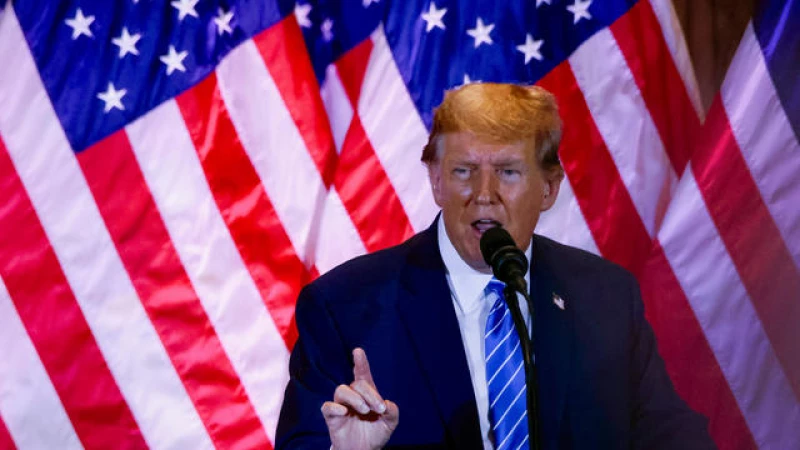Washington— Former President Donald Trump's legal team will be arguing before a federal judge in Florida on Thursday to have special counsel Jack Smith's case involving classified documents against him dismissed.
Judge Aileen Cannon is scheduled to listen to arguments on two motions filed by Trump. One motion claims that the former president is protected from prosecution by a federal recordkeeping law, while the other argues that one of the charges raises several unresolved legal issues.
This will mark the second hearing in consecutive weeks where Trump's lawyers and prosecutors from Smith's office will come face-to-face in Cannon's courtroom.
Smith has charged Trump with 32 counts of unlawfully retaining classified government records, alleging that he removed documents from the White House during the transition period. The former president, along with two aides, is also accused of participating in a scheme to impede investigations. All three individuals have entered not guilty pleas and have refuted any wrongdoing.
In a motion filed at the end of last month seeking dismissal, Trump argued that the case should be thrown out because, as president, he had the authority to designate any document as personal without review. His legal team asserts that the Presidential Records Act prevented judicial oversight of his recordkeeping practices.
Former President Trump's Legal Battle Over Document Retention
Former President Trump's legal team argued that he should not face obstruction charges related to the handling of government documents, citing past precedent and his status as the President at the time of the alleged actions. They claimed that the documents in question were packed and delivered to Mar-A-Lago while Trump was still in office, therefore he should not be held accountable.
However, the special counsel refuted this argument, stating that the sensitive government records Trump is accused of retaining belong to the government and are not personal property. Prosecutors emphasized that Trump, after leaving office, was not authorized to possess classified records, especially at unsecured locations like Mar-a-Lago.
Despite Trump's assertion of classification authority during his presidency, prosecutors highlighted that efforts were made by various government entities to retrieve the missing documents over the course of a year.
Trump's Legal Battle Over Classified Documents
In January 2022, Trump returned 15 boxes of documents containing classified markings. Subsequently, a grand jury issued a subpoena for records, leading to the discovery of additional documents. The FBI then conducted a search at Trump's Mar-a-Lago resort, revealing hundreds of sensitive records stored in unsecured locations.
Trump's lawyers argued on Wednesday that "The Special Counsel's Office cannot escape the import of the PRA's textual commitments of discretion and authority to President Trump during his first term."
Another motion, to be reviewed on Thursday, is based on Trump's assertion that there are unresolved legal issues concerning the Espionage Act, which he is accused of violating. Trump's legal team claims that the ambiguity in the law renders it unconstitutional.
However, Smith countered this argument, stating in court documents that "Trump's vagueness argument is meritless. Trump is charged with the unauthorized possession and willful retention of national defense information. The statute's prohibitions are clear."
Trump and his co-defendants have requested hearings on various dismissal motions, including claims of vindictive prosecution and presidential immunity. Smith has opposed these motions, including the issue of presidential immunity. The Supreme Court is set to address this matter next month in connection to Smith's charges against Trump related to the 2020 election in Washington, D.C.
The criminal trial is currently paused pending the Supreme Court's decision.
According to prosecutors, Trump's legal team is simply attempting to postpone the trial in Florida, pushing for a start date in July. Judge Cannon presided over a hearing regarding the trial schedule on March 1, but has yet to make a ruling. The defense argues that a fair trial would not be feasible before the 2024 presidential election, suggesting an August or September start date if necessary.
The developments in court occurred following a county judge in Georgia dismissing three charges against Trump in connection to District Attorney Fani Willis' 2020 election interference case. Trump, who maintains his innocence, still faces other charges in the same case.
Earlier this week, Judge Cannon granted Trump a 10-day extension to file additional paperwork related to various motions seeking to dismiss the case.







